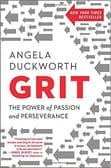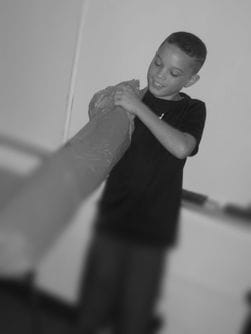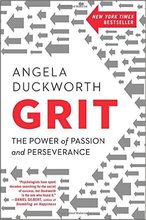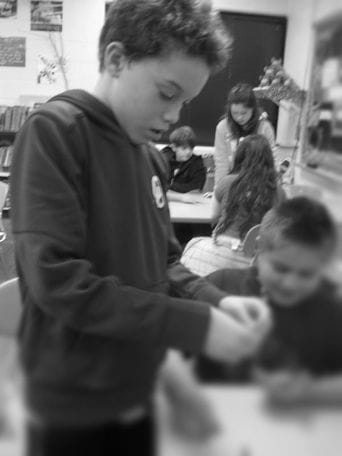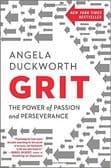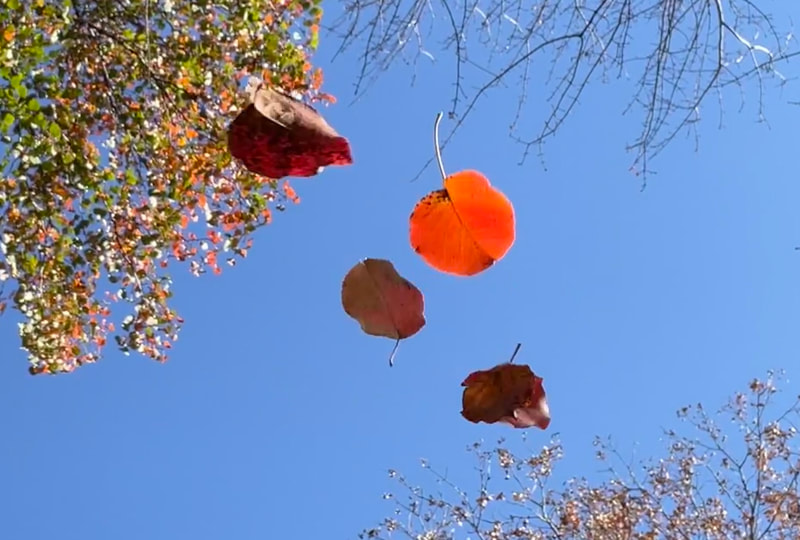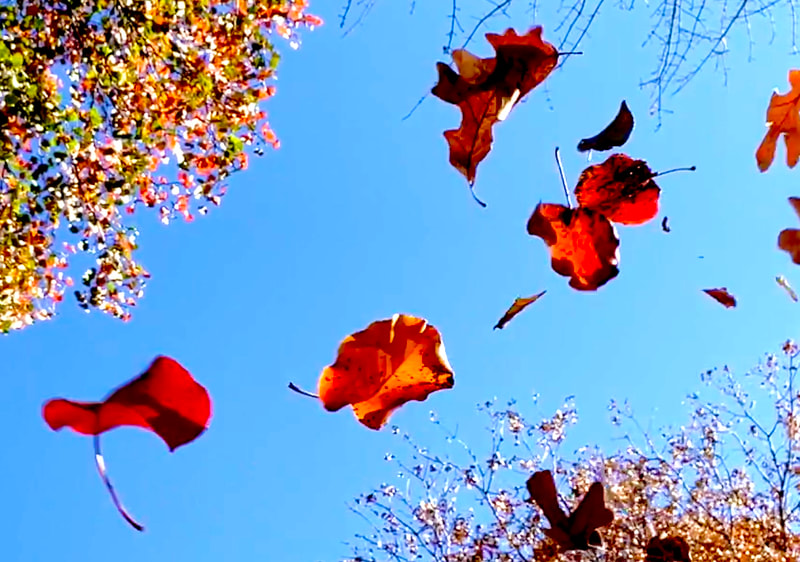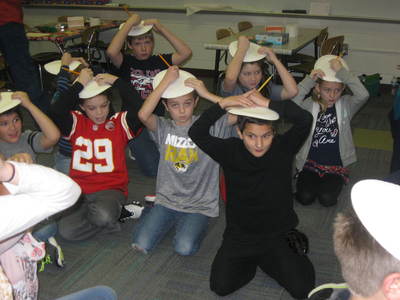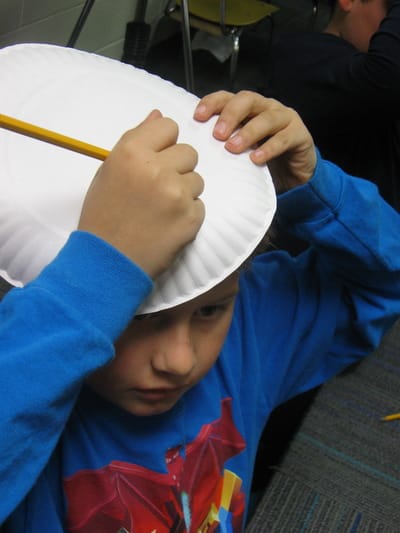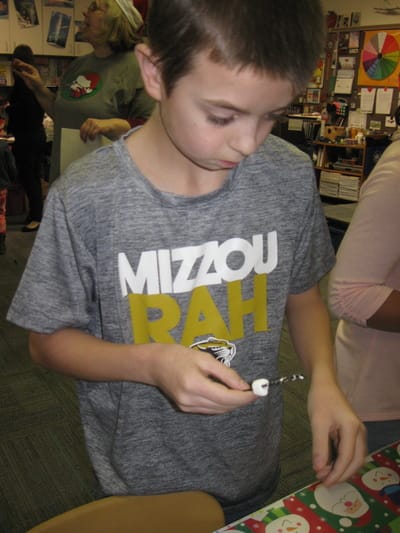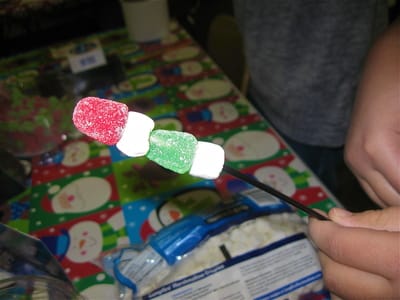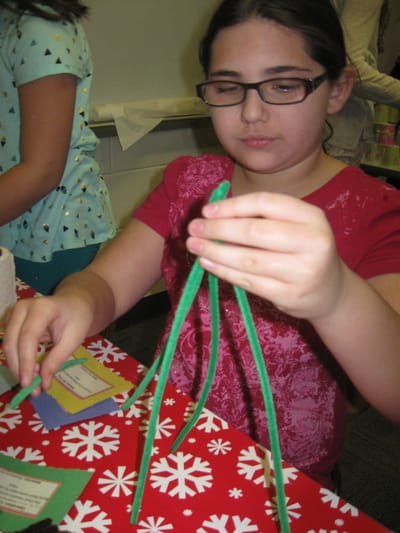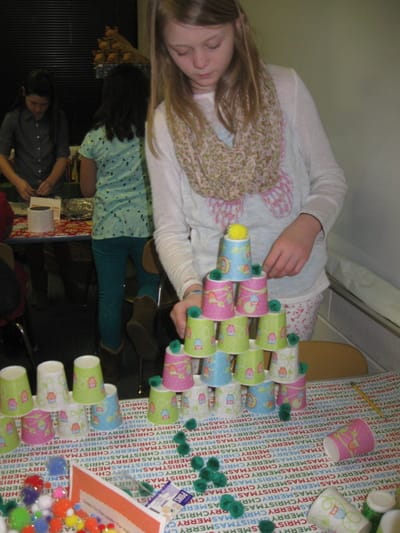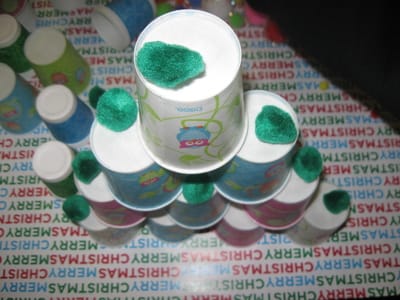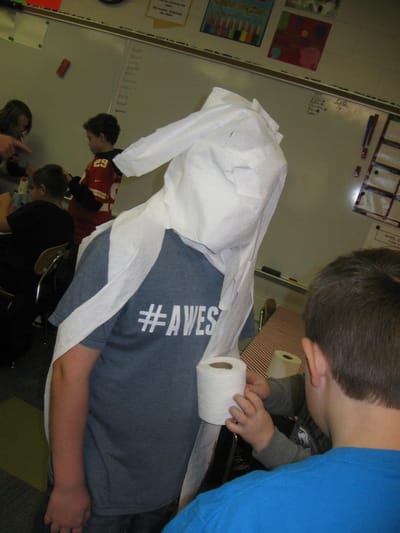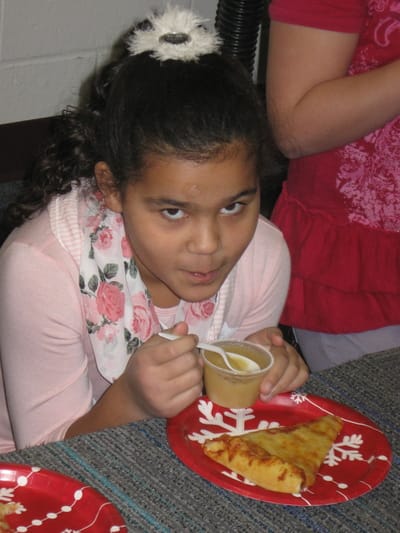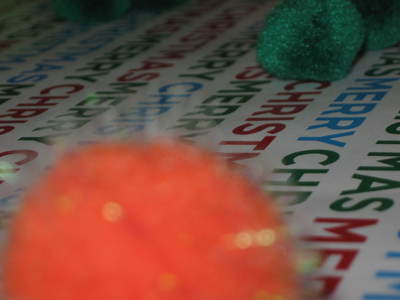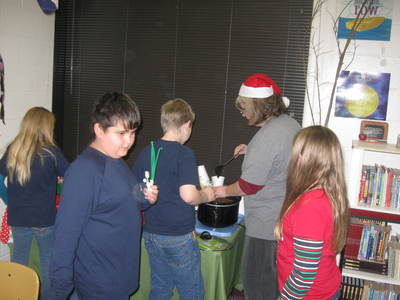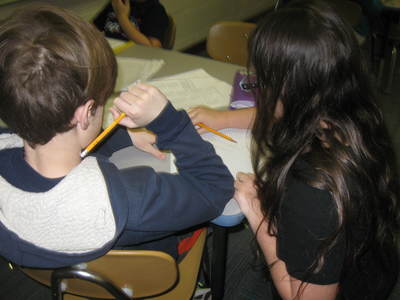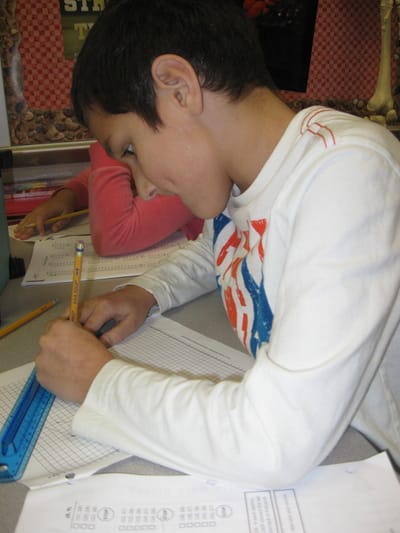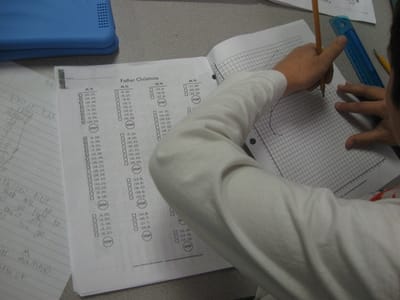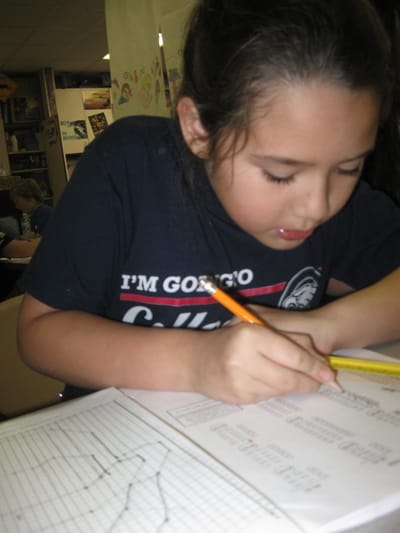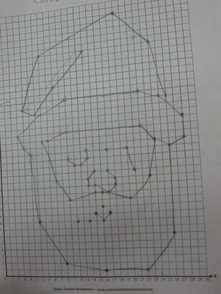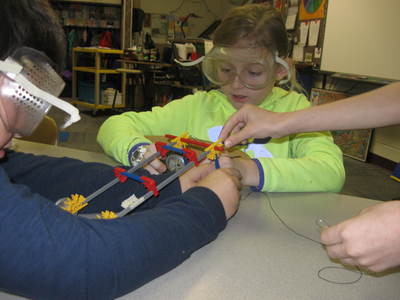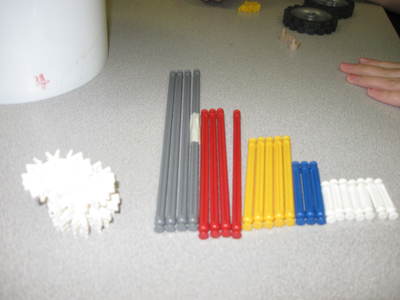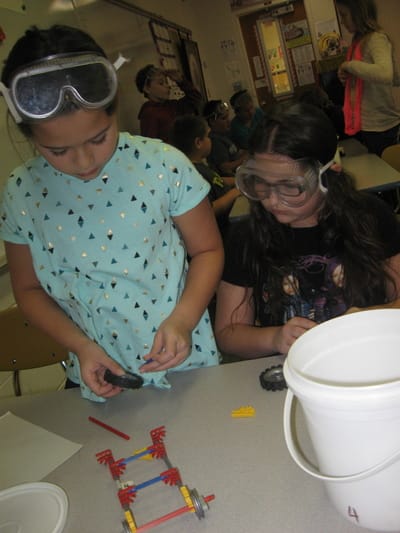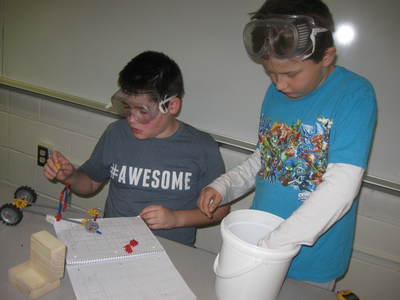|
The temperatures, this winter, have been reasonably mild, so the family and I took a quick drive to Grand Falls for a look-see. This is Missouri's largest continuously-flowing falls, and it's right here in Joplin's back yard. If you get a chance, trek on over to the falls, and explore nearby Wildcat Glades during your time off.
0 Comments
Like we might guess, there is not a cut-and-dry approach to answering the question. I often call for balance in the theories that are presented in education and psychology. In the same way, I would suggest that the answer to the nature-versus-nurture question is not one or the other, but a bit of both. Duckworth explains that just as hundreds of genes determine height, the same is true of defining grit. This is not a single gene. The human body and psyche are complicated. Of course, we might have figured all of that out on our own, just as we might have surmised that the following is true: Likewise, we learn, as novelist John Irving did, that "to do anything really well, you have to overextend yourself," to appreciate that, "in doing something over and over again, something that was never natural becomes almost second nature," and finally, that the capacity to do work that diligently "doesn't come overnight." But is that all that grit is? Is it just a matter of repeating something over and over to the point that it becomes an overlearned, second nature, habit? That's what I did in my high school typing class, but I wouldn't exactly say I was gritty about it. No, there seems to be something more to defining grit than to say it is simply dedication to practice. In fact, Duckworth says that practice is only one of four aspects of grit. First comes interest. Passion begins with intrinsically enjoying what you do...With enduring fascination and childlike curiosity, [gritty people] practically shout out, "I love what I do."
In fact, while some teachers want to put all their eggs in the basket of Brain Breaks and appeasing sensory needs, and while others want to gamble on flexible seating, once again, let us call for balance. Finally, in the closing paragraphs of part one, Mrs. Duckworth encourages me with these lines: The four psychological assets of interest, practice, purpose, and hope are not You have it or you don't commodities. You can learn to discover, develop, and deepen your interests. You can acquire the habit of discipline. You can cultivate a sense of purpose and meaning. And you can teach yourself to hope. That certainly makes me think. As I wonder how to make practice more meaningful, how to bring purpose to what students do, and how to give my students hope, I must keep experimenting. When it's all said and done, this book about passion and perseverance affirms what many of us already understand - that the art of teaching is every bit as important as all of the data collection and interventions we can muster. One class of students is different from the next. Relationships matter and are not always natural. Getting students to want to do things is not the same thing as sneaking education into the day in the guise of fun and games.
I know, as you do, that a kid will appreciate the reward of learning more if s/he realizes the effort it takes. Looking back at the pains of learning makes pupils understand better the value of their investment in the process. That seems to work for many, but it works it works in different ways for different people. I read this book from a couple of point of view - first, as an educator, as I've addressed here in helping other people develop their own grit, but secondly, as a person who must cultivate determination, goal-setting, and the rest, in myself. How can I meet my personal goals? How do I become the human being that I want to be - as a parent, as a teacher, and as a Christian? Read the sentence below. Do you see any problems? that were the nicer thing anybody ever said to me Do not rewrite the sentence. In fact, don't even fix the sentence. Instead, on your paper, tell the writer how to correct three things.
It is something to understand - what is grit? It is something to study - what stops students from persistent effort? I have seen students at both ends of the spectrum. I've watched as some have overcome the obstacles and others have thrown their hands up in surrender. What makes the difference? For now, we'll have to await a later chapter in the Grit book. For now, it is something to understand; perhaps by understanding this, we may better address the needs of all kinds of students. I'll leave you with one last thought from the chapter. I especially liked the clarity of these thoughts concerning the vocabulary. I would add that skill is not the same thing as achievement, either. Without effort, your talent is nothing more than your unmet potential. Without effort, your skill is nothing more than what you could have done but didn't. With effort, talent becomes skill and, at the very same time, effort makes skill productive. Read the sentence below. Do you see any problems? i never thinked about it that way Do not rewrite the sentence. In fact, don't even fix the sentence. Instead, on your paper, tell the writer how to correct three things.
They catch Pokemon (Pokemons? Pokemen?). They know Batman. They quote sports stats. But they can't be bothered to learn new things, even when things are explained clearly and repeatedly in step-by-step fashion. It reminds me of the first chapter of this book, when the author explained that even students with determination need direction. It would seem that some students have direction, but they might need redirection to get them interested and motivated to learn. In Angela Duckworth's book, Grit, she mentions this: For years, several national surveys have asked: Which is more important to success - talent or effort? Americans are about twice as likely to single out effort. That same is true when you ask Americans about athletic ability. And when asked "I you were hiring a new employee, which of the following qualities would you think is most important?" Americans endorse "being hardworking" nearly five times as often as they endorse "intelligence." 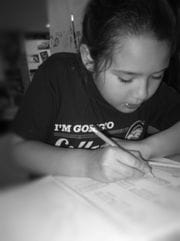 Of course, once on the job, an employer might expect his/her employee to put that hard work to the grindstone and to quickly gain some intelligence. If the hard work becomes just a spinning of the wheels or is directionless, then the hard work is vanity. Still, to understand that perseverance is at twice as appealing than intelligence is something we should not pass over. Our own Principal Bozarth recognizes that the way we praise makes a different in this regard, as well. When we tell our children we are proud of their achievement, it yields a different response than when we praise them for their hard work. It makes sense, doesn't it? To receive similar praise, the smart kid will achieve high on simple tasks, but to get more intrinsic praise, the gritty kid will work even harder next time. The point of this chapter in Duckworth's book might be that we say we value hard work over talent, but our actions reward in just the opposite manner. When a smart child sits in my room and answers my questions with the responses I am looking for, it makes me feel better as a teacher, but why? When that child entered my room, s/he already had skills; I had very little to do with his/her success. But when a child enters my room and shows growth due to giving it everything s/he has, I might more appropriately feel a modicum of personal success. As a teacher I should stop being so distracted by talent, and look more for the motivation and the potential of my students.
Read the sentence below. Do you see any problems? i new it wood bee hard but that didnt keep me from trying Do not rewrite the sentence. In fact, don't even fix the sentence. Instead, on your paper, tell the writer how to correct three things.
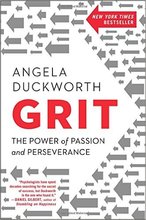 After viewing the speech in the video (above), I decided to pick up a copy of Angela Duckworth's book, Grit: The Power of Passion and Perseverance. The first chapter title - Showing Up - caught my eye. For the past few years I have noticed that certain students will not approach a problem when it appears in form to be difficult or unpleasant. These students literally give up without reading a single word. They refuse to consider that the problem may be dissected into smaller chunks, that their current skills may be sufficient for solving new problems, or that they might learn something from doing a difficult task. They turn their backs instead of toeing the line. They put their heads in their hands, and they stare at their shoes. For some, I must break through their barriers to build them up to the level that they will even show up. The first chapter in Duckworth's book set out to contrast people like these students with the other end of the spectrum. In the same classroom, I can easily and continually call upon certain students who refuse to give up. These are the ones who enjoy a challenge, even at the risk of making mistakes or losing face. These are the students who are joyful when they discover mistakes and find fixes. I feel like the first chapter gave me these paragraphs to ponder: Why were the highly accomplished so dogged in their pursuits? For most, there was no realistic expectation of ever catching up to their ambitions. In their own eyes, they were never good enough. They were the opposite of complacent. And yet, in a very real sense, they were satisfied being unsatisfied. Each was chasing something of unparalleled interest and importance, and it was the chase - as much as the capture - that was gratifying. Even if some of the things they had to do were boring, or frustrating, or even painful, they wouldn't dream of giving up. Their passion was enduring.
We should all be able to understand the idea of never being satisfied, as well. With 27 years in the public school classroom as an educator, I have come to the conclusion that I will never satisfy the desire I have to be an excellent teacher. Every year, I attempt to improve. Instead of becoming satisfied that I have achieved my goal, I must instead conclude that I should be "satisfied being unsatisfied".
I shall read on about grit. I'm not sure what to expect, but I'll be on the lookout for any clarity that might present itself. The second party of the year was quite engaging. Hoggatteers had more activities to do than they had time to do them. I couldn't even get enough pictures, as I was busy strategizing for the massive "snowball fight" that topped it all off. It made for a memorable last school day of 2016. Thank you to all of the "party parents" who planned and executed the event; Hoggatteer families are the best families out there!
Our newest challenge was to design a vehicle that could cover a specified distance between five and seven seconds - not too fast and not too slow. The group dynamic and interpersonal skills came into play here, as well as the academic challenge. It's interesting to see which students step up as leaders, which are willing to follow along, and which would rather sit out. This is where I like to see kids discuss and collaborate (a not-so-easy task for fourth graders).
|
AnthemThe Hoggatteer Revolution
is an extensive, award-winning, inimitable, digital platform for Encouraging and Developing the Arts, Sciences, and honest Christianity in the beautiful, friendly LAND OF THE FREE AND THE HOME OF THE BRAVE This site is described as
"a fantastic site... chockablock full of interesting ideas, hilarious anecdotes, and useful resources." 
...to like, bookmark, pin,
tweet, and share about the site... and check in regularly for new material, posted often before DAWN'S EARLY LIGHT! History in ResidenceElementary Schools: Bring Mr. Hoggatt into your classroom for a week of engaging and rigorous history programming with your students. LEARN MORE BUILDING BETTER
|
